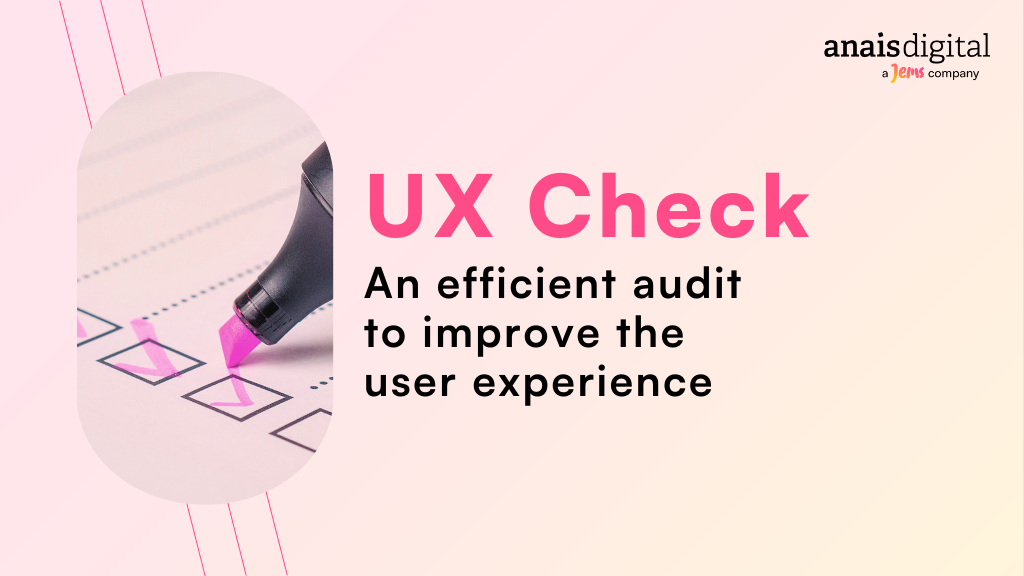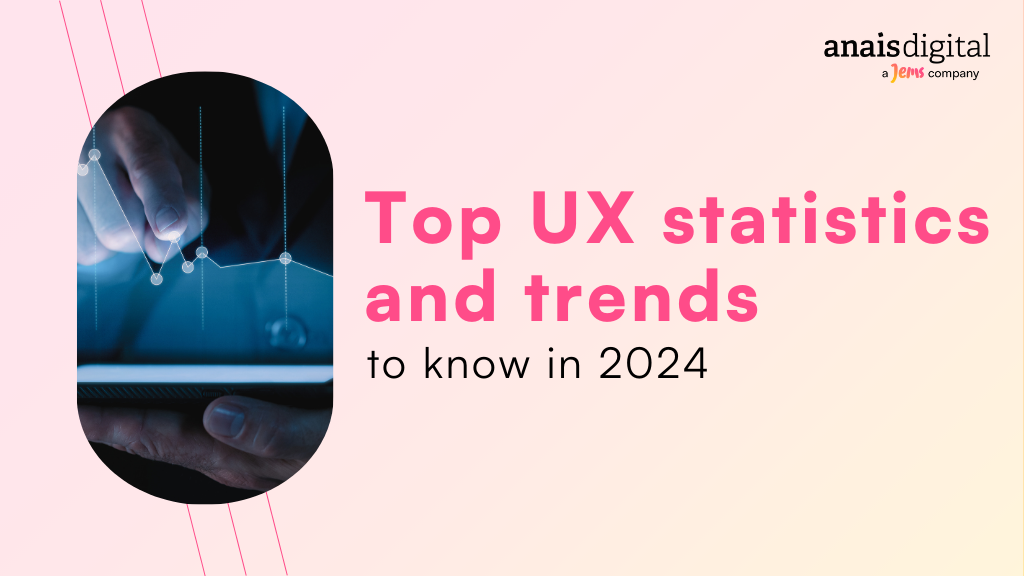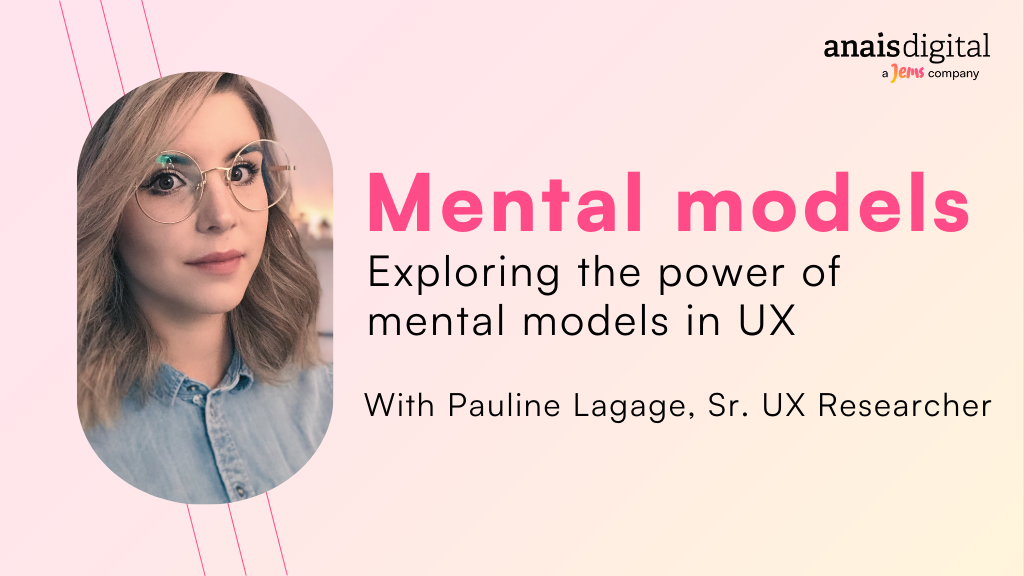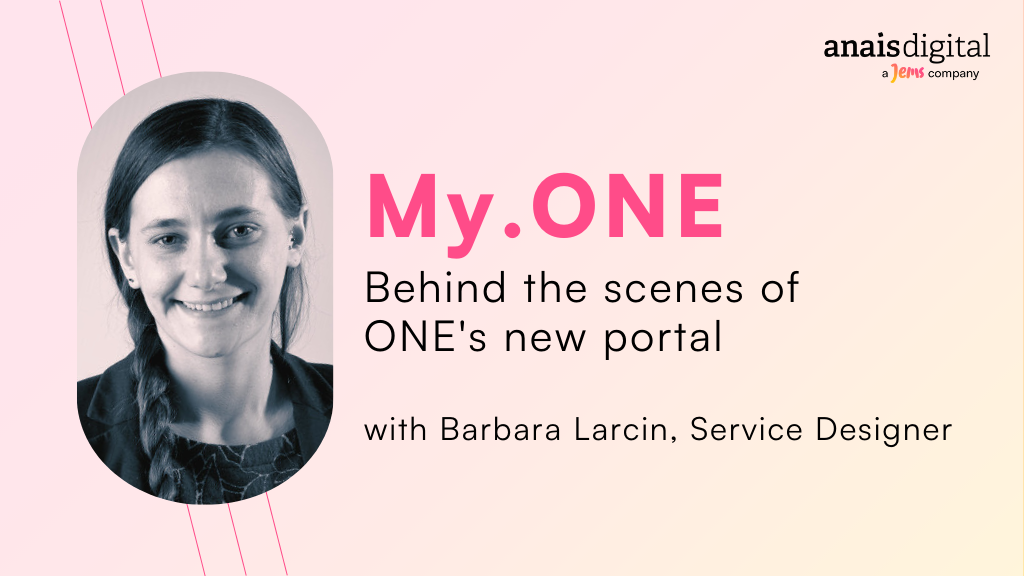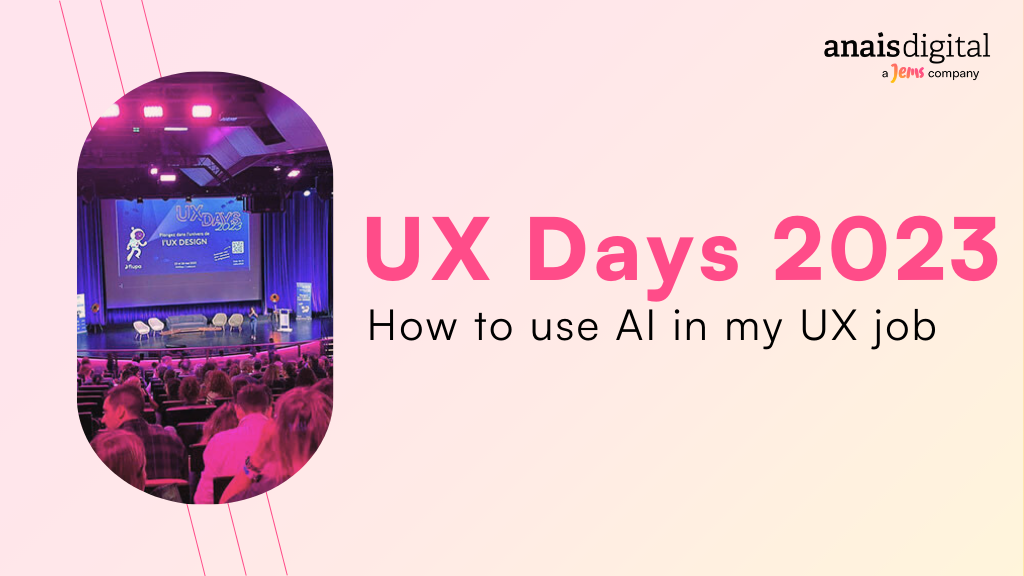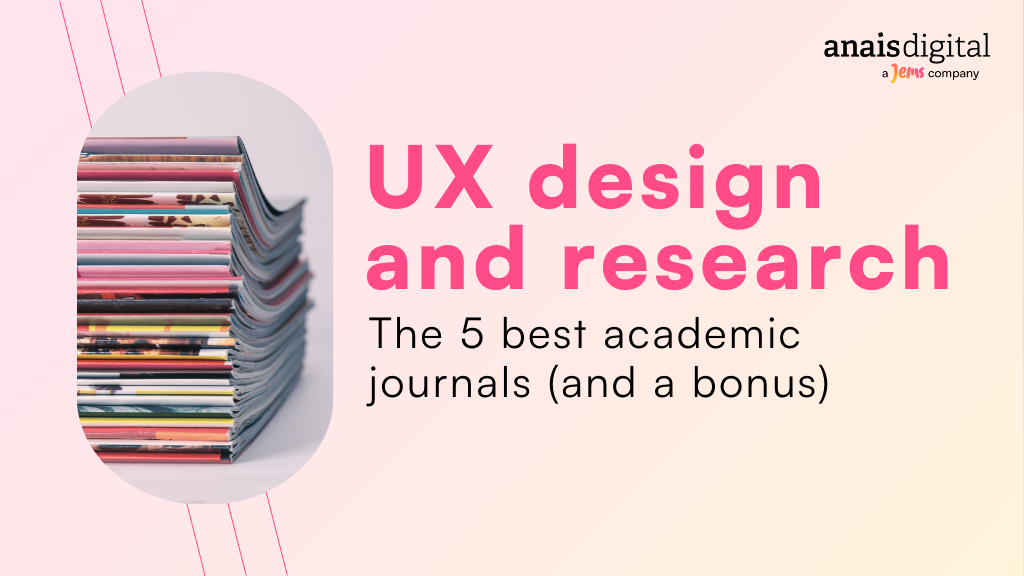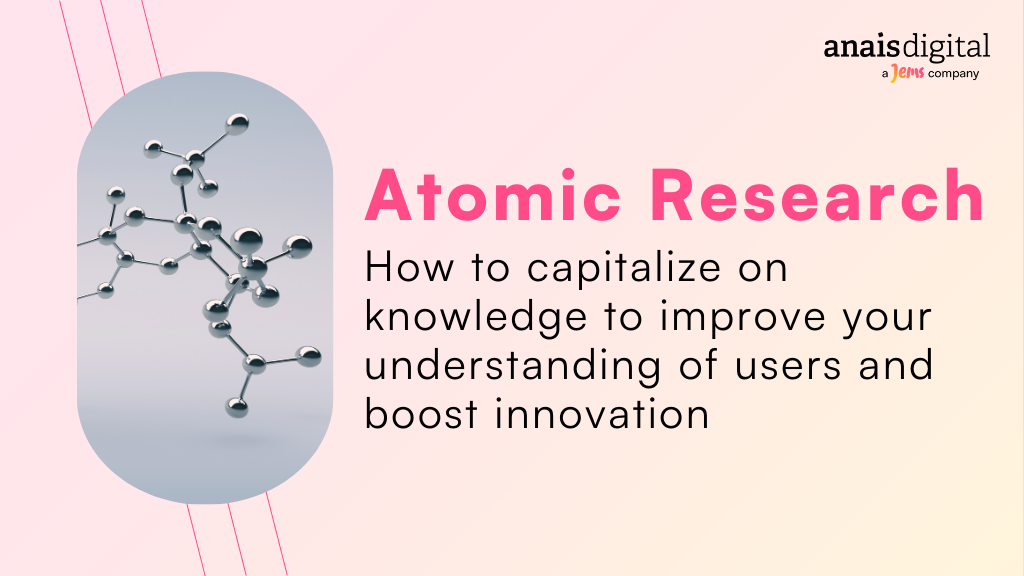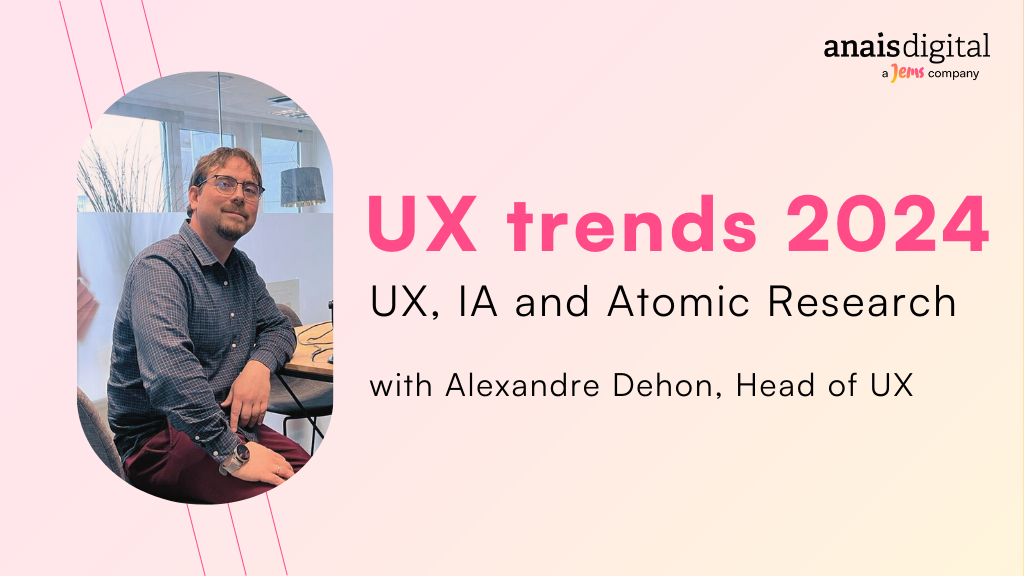
How is artificial intelligence redefining the rules of the UX game?
In this new episode, Alexandre Dehon, Head of UX at Anais Digital, shares his expertise on today’s major UX trends, with a particular focus on the major impact of artificial intelligence (AI).
This episode is aimed at all UX professionals wishing to understand and master AI in order to stay in step with developments in the sector.
The impact of AI on UX professions
Alexandre highlights how AI is transforming the UX field, not by replacing professionals, but by leading them to acquire new skills. He also discusses the challenges and opportunities that AI brings to user-centered design.
Main applications of AI in UX
- Improving the user experience : exploring the advances enabled by AI, such as chatbots and intelligent navigation tools.
- Optimizing the work of UX professionals : How AI contributes to research, analysis, ideation and the design of more effective interfaces.
- AI concerns: discussion of over-reliance on AI, lack of creativity and empathy in AI tools, and
- The data challenge: The challenge of managing user search data and the solutions offered by atomic research.
Further information
Would you like to learn more about UX or develop your teams? Discover the UX training courses offered by Anais Digital and, in particular, the new course on AI to boost the UX profession.
Need help integrating AI into your projects? Discover Anais’ expertise in UX, development, change management, data and accessibility.
Transcript of the episode
No time or opportunity to listen to this podcast? Here is a transcript.
[00:00:00.000] – Tarik Hennen
Hello everyone, and welcome to another episode of the podcast from Anais Digital, the agency that puts people and data at the heart of digital projects. Today, we’re going to talk about the latest trends in UX, and in particular the impact of AI. For this episode, we’re delighted to welcome Alexandre Dehon.
[00:00:17.700] – Alexandre Dehon
Hello, my name is Alexandre Dehon. I work at Anais Digital, part of the JEMS group, and I’m in charge of all UX methodology and I also run the UX Academy.
[00:00:29.990] – Tarik Hennen
What are the major trends and opportunities in UX today?
[00:00:34.320] – Alexandre Dehon
The big trend in UX today, which has really taken off over the past year, is the use of AI in the UX profession. From the end of 2022 until now, AI’s share of the UX business is only increasing.
[00:00:55.790] – Speaker 3
The question many people ask is: will AI replace me in my UX job?
[00:01:01.320] – Alexandre Dehon
The observation we’ve been making since the dawn of time is that the machine will replace certain things, certain tasks in our profession, but above all it will transform it and lead us to acquire new skills. In fact, the most important thing is not how AI is going to replace me, but rather how I’m going to acquire the skills I need to use AI and make my job evolve. That’s the real question. That’s the question we want to answer.
[00:01:29.750] – Tarik Hennen
This is true for all professions. What specific applications and opportunities can be explored today, through or with this training?
[00:01:40.790] – Alexandre Dehon
There are two good ways to use AI in UX. The first way is to use AI as part of the experience. That is, AI will be used for a chatbot, it could be used for an interaction. You don’t even think about it, but when you open your Google Maps or any of your applications today, they use AI. AI is an integral part of the experience you have with these different digital media, these applications. That’s the first major application of AI in UX. The second implication of AI in UX is to use AI to boost our UX profession, to become more efficient, save time and above all gain value and quality in our profession. That’s what the training we’re offering here is all about: how will AI enable me to be a better UX? It’s not a question of how I’m going to integrate AI into my phases, it’s a question of how I’m going to use AI in my day-to-day work, in my profession, in the various phases of the designer’s design cycle, i.e. in the preparation, planning, user research and analysis phases, but also in the more creative ideation and brainstorming phases, and also in the interface design phases, in the actual creation of interfaces, in the evaluation of interfaces, in the optimization of interfaces.
[00:03:14.190] – Tarik Hennen
Are there any risks? Do you see any risks in the shortcuts we can take with AI or false data? Can we get lost with this?
[00:03:24.330] – Alexandre Dehon
There are several pitfalls to using AI in a UX, several risks. The first is to think: AI is going to do things for me, so I trust it blindly. I don’t even question what the AI is doing to me. So maybe I’ve asked it to create personas for me, maybe I’ve asked it to imagine solutions, and I’m content with what it gives me. That’s the first big risk: AI isn’t a human being, and therefore doesn’t have creativity or empathy. But creativity and empathy are two ultra-fundamental skills in our business, and we’re not going to lose them.
[00:04:08.690] – Alexandre Dehon
We have to provide them and we have to be involved in AI. The other major drawback today is that the AI tools made available to us are tools that we, as UX professionals, have very little control over. In other words, we’re going to feed the machine, we’re going to ask it to execute functions and queries, but in the end, all the data we give it is somewhere out of our control. We run the risk of customer data, for example, circulating on the Net. We run the risk that the proposals made by the AI are the fruit of certain links. We don’t really know where it’s coming from. I’m not talking about other more specific professions such as data analysts and data scientists, who are capable of training AIs and verifying data. As UX specialists, we don’t necessarily have that background, and so we have to be fairly vigilant about the use and processing of data.
[00:05:21.240] – Tarik Hennen
Trust but verify.
[00:05:23.070] – Alexandre Dehon
That’s it. That’s it. Not even trust. I don’t think you should even blindly trust the use of a ChatGPT, for example, anything LLM. Instead, ask yourself: What am I going to ask it? What am I going to give him too? It’s really like talking to someone. That’s another key point. With an AI like LLM, ChatGPT, you’re in a conversation. Even if you’re in front of a machine, it’s important to learn to come back to a conversation. And when you’re talking to a stranger, you don’t tell them just anything, you don’t ask them just anything, you don’t believe everything they tell you.
[00:06:11.130] – Alexandre Dehon
You need to direct the work, and you also need to learn how to converse with this AI to have an interesting discussion.
[00:06:25.410] – Alexandre Dehon
You have to know, you have to practice, you have to discover your limits in order to discover your potential. And then you have to experiment. That’s really important. Not everything will suit a UX professional. Some will find the analysis part more interesting, while others will find the ideation part more interesting. I also use AI to generate diagrams. I know that, typically, it’s something that will interest people to have diagrams in a few seconds, based on real data. It saves time in our business on tasks that are, I’m not going to say administrative, but that are more operational and ultimately leave us more time to reflect on what really has value. What’s really valuable is to think about the user’s needs, to go in depth into these user needs, to imagine lots of out-of-the-box solutions for the user. And when we save time on more basic, operational tasks, we can use that time to create value.
[00:07:41.240] – Tarik Hennen
If we come back to trends, you told us: the first trend is AI. What are the other current trends?
[00:07:47.120] – Alexandre Dehon
Today, after perhaps a decade or less of user research, companies have an enormous amount of data on their users. But they can’t exploit it. We’re seeing a strengthening, because one trend is a strengthening of everything to do with atomic research. How am I going to exploit all my user research data as if they were atoms, molecules or particles, and build things that make sense today? And so, atomic research is a fairly strong current trend, or a fairly strong demand within a company. You have different challenges. One challenge concerns the operationalization of atomic research. How do I implement it in my company? What tools, what processes, what data processing? And then there’s a part that’s more to do with exploiting this atomic research. What do I get out of it? How do I create a strategy for my company? This is a current challenge in which, once again, AI is playing a huge role, since AI, through its ability to analyze and process data, find trends and cross-reference information, is actually accelerating this process.
[00:09:24.800] – Alexandre Dehon
So, in relation to atomic research, which is a growing trend, AI is not going to make us miss the boat, it’s going to accelerate this paradigm shift. Another current trend, which has more to do with regulatory aspects, is accessibility. Institutions must make their sites accessible. We’re also seeing a lot of big companies taking the plunge, realizing that accessibility will have an impact in terms of user experience for their customers, will have an impact in terms of SEO, and will also have an impact in terms of CSR, corporate social responsibility. And here again, accessibility has a very human, empathetic side, as we improve interfaces so that everyone can use them. But at the same time, it’s a strong positioning argument for companies, since in accessibility, we show that we have objectives that go beyond the merely economic, but also rather in our European, French, Belgian universe, compliant with the age of legislation and so also, these are very positive signs on the market for companies, as was the RGPD. Accessibility is also a strong trend right now.
[00:11:05.990] – Alexandre Dehon
There are different levels of accessibility. There are levels that are more process-oriented, levels that are design-oriented, levels that are technically-oriented. And so, in the different layers of accessibility, it’s necessary to train people, it’s necessary to acquire good practices, it’s necessary to understand the regulatory expectations, the technical expectations to be able to really set up an accessibility strategy.
[00:11:43.110] – Tarik Hennen
Thank you for listening all the way. For those of you who want to learn more about UX, I invite you to visit events.anais.digital to find out more about the UX Academy and the training courses on offer. See you soon for new episodes.


